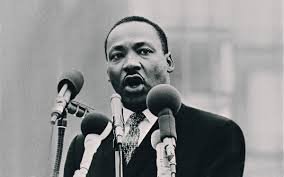Martin Luther King Jr. was an American religious leader and civil-rights activist. He is most popular for his noble speech ‘I Have A Dream”.
Today, Monday marks Martin Luther King Jr. Day, the federal holiday that honors the life and legacy of the American civil rights icon who was assassinated in 1968. The holiday is observed each year on the third Monday of January, and the commemoration is the only federal holiday that is “designated as a national day of service to encourage all Americans to volunteer and improve their communities,” according to the Smithsonian National Museum of African American History and Culture.
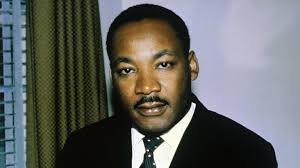
The holiday didn’t come together seamlessly. Efforts from Coretta Scott King, the widow of King, as well as lawmakers, activists, and others, took years. The life and legacy of Dr. Martin Luther King Jr. will once again be celebrated and honored on Monday at events around the nation USA.
The holiday recognizes King’s birthday, January 15.
Here’s what you need to know about how Martin Luther King Jr. Day became a holiday.
Martin Luther King Jr. Day is observed on Jan 20th every year. This year, the inauguration falls on the same day. The federal government shuts down on the third Monday of every January for the day to honor Martin Luther King Jr. The Civil Rights icon, whose work to end segregation and racism through nonviolence earned him the Nobel Peace Prize in 1964, is the only non-president with a federal holiday named in his honor. Every year on MLK Day, the federal government closes and citizens across the U.S. take part in a day of service.
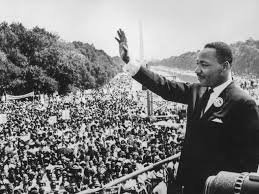
How did Martin Luther King Jr. Day become a holiday?
Former U.S. Rep. John Conyers, D-Mich., introduced legislation to create a federal holiday honoring King on April 8, 1968, just four days after the civil rights leader’s assassination.
Over the next decade, support for the holiday would swell across the country, and several states, including Illinois, Massachusetts and Connecticut, would enact statewide holidays honoring King.
Conyers spent years reintroducing the federal legislation, with support from lawmakers in the Congressional Black Caucus. In 1979, on what would have been King’s 50th birthday, the bill came up in the House, but it failed by five votes.
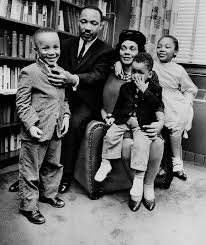
The fight to create the holiday didn’t stop at the narrow vote. Coretta Scott King and others campaigned for the holiday and rallied the public. King would testify before Congress multiple times. She (Coretta Scott King) and singer Stevie Wonder, who released his song “Happy Birthday” in support of enacting the holiday, delivered a petition in favor of the holiday with over 6 million signatures in 1982.
The House ultimately approved the holiday in 1983, and though the push to create the commemoration faced some opposition in the Senate, former President Ronald Reagan signed it into law later that year.
But it took longer than that for states across the country to adopt the holiday, including fights in Arizona, South Carolina and elsewhere, according to the National Constitution Center. The holiday has been recognized in each state since 2000.
The first national holiday honoring King was celebrated in 1986.
About Martin Luther King Jr.
Martin Luther King, Jr. was born January 15, 1929, Atlanta, Georgia, U.S.—died April 4, 1968, Memphis, Tennessee) was a Baptist minister and social activist who led the civil rights movement in the United States from the mid-1950s until his death by assassination in 1968. His leadership was fundamental to that movement’s success in ending the legal segregation of African Americans in the South and other parts of the United States. King rose to national prominence as head of the Southern Christian Leadership Conference, which promoted nonviolent tactics, such as the massive March on Washington (1963), to achieve civil rights. He was awarded the Nobel Peace Prize in 1964.
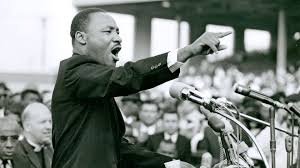
King came from a comfortable middle-class family steeped in the tradition of the Southern Black ministry: both his father and maternal grandfather were Baptist preachers. His parents were college-educated, and King’s father had succeeded his father-in-law as pastor of the prestigious Ebenezer Baptist Church in Atlanta. The family lived on Auburn Avenue, otherwise known as “Sweet Auburn,” the bustling “Black Wall Street,” home to some of the country’s largest and most prosperous Black businesses and Black churches in the years before the civil rights movement. Young Martin received a solid education and grew up in a loving extended family.
Stay tuned for more on the story and history of one of Global Africa’s greatest icons, Martin Luther King Jr.


